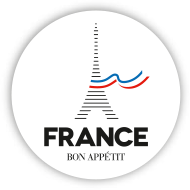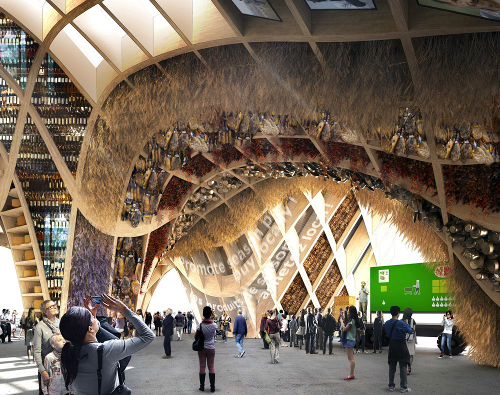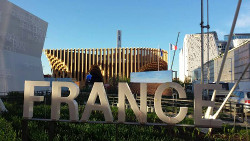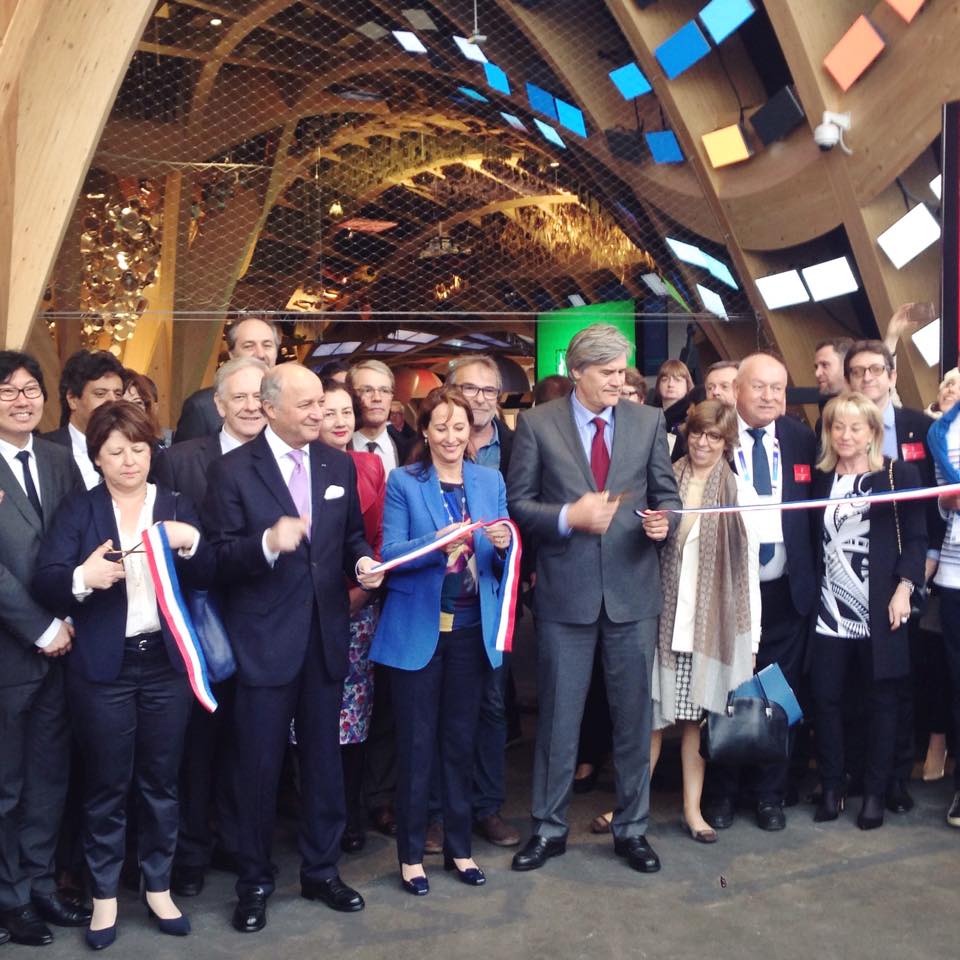
THE FRENCH
FOOD
INDUSTRY'S PORTAL
Webzine
taste it to info

The French Pavilion: the star of the show at the Universal Exhibition of Milan
News /
Friday 10 July 2015
From May 1 to October 31, 2015 in Milan, Italy is pulling out all the stops to host the Universal Exhibition. More than 140 participating countries will showcase their responses to the theme designated by their Italian hosts, which this year focuses on “Feeding the planet, Energy for life”. Over the course of six months, the exhibition is expected to attract some 20 million visitors from around the globe, receiving 250,000 visitors a day during peak periods.
The head of the Italian government, Matteo Renzi, together with other key, high-ranking, international figures, attended the event’s opening ceremony, the impact of which should benefit every participating country. Essentially, it is the opportunity to feature a crucial issue in the spotlight. 850 million people in the world currently suffer from malnutrition, and as François Hollande reiterated during his visit to the French Pavilion on March 18, “We have a moral, economic and ecological duty to produce more in order to feed an ever expanding population, but also to produce more efficiently, to guarantee the production of quality food without draining our planet’s resources. “
This is just a preliminary response to this global challenge. We will have to wait and see how France’s own response will take shape in the future.
The French Pavilion explained
The French Pavilion is a 2,000 m2 “Territory-Building” of which more than half the space is devoted to conceptually designed sets. The concept is inspired by the “Halles Baltard”, constructed in Paris under the reign of Napoleon III. The 12 buildings, comprising this remarkable structure dating back to the end of the 19th century, were in fact a vast food hall, selling eggs, milk, meat and fruit and vegetables, instating Les Halles as Paris’s central market. Indeed the market is rich in symbolism pertaining to the exhibition’s global theme. The pavilion is therefore modeled on the concept of a bustling, typically French market. Constructed of 2,000 wooden timbers and weighing 1,000 tonnes, its garden stretches 1,200m2, and is planted with 60 different plant species. The timber-framed structure, made from natural wood from the Jura, showcases French savoir-faire in its most innovative form, using digitally-controlled, free form construction, invisible joints and complex geometry. The design of the building’s interior is an inverted 3D landscape representing the diversity of France’s land.
The scenography cleverly integrates the plant decor. Visitors enter France’s exhibition space via a vast, lush, labyrinth of a garden, with a series of three landscapes devoted to cereal crops and livestock, polyculture and market gardening,
Lastly France’s edifice in Milan boasts sustainable architecture. Indeed the lifespan of the pavilion does not match the exhibition itself, as it will be taken apart piece by piece, and reconstructed in its original state on its return to France. The 12m-high structure was also designed with an energy-saving objective, in line with the environmental message of the exhibition.
Throughout the duration of the exhibition, France has lined up a rich programme of lectures, debates, exhibitions, forums, conferences, tastings and other events, transforming the Pavilion into a highly stimulating and attractive place.
France’s responses to the global food challenge of the future
“Feeding the planet, Energy for life” is the core theme of Expo Milano. France’s response is founded upon four indissociable pillars that all aim to produce more and better:
– Exporting French produce to food-deficient countries
– The transfer of France’s food-related technical and scientific insight and skills to deficient countries in order to promote self-sufficiency.
– Producing more food and producing sustainably. To achieve this, France focuses on examples such as agro-ecology in agriculture, or optimal sustainable yields in fishing.
– A quality dietary model, based on the pleasure derived from a balanced, diet, and a greater emphasis on food safety.
Alain Berger, Commissioner of the French Pavilion, echoes France’s intentions through these 4 pillars. “France believes it is capable of delivering several responses at once. An economic response in terms of producing more, a scientific response through progress, and a sustainable response, as we need to protect our resources. Not forgetting solidarity. More development aid is needed and increased solidarity shown to countries that struggle to feed themselves, and with foods of the necessary quality” he explained.
Alain Berger, like many French citizens taking part in this tremendous adventure, cannot help but feel proud. “As a French fonctionnaire civil servant, I feel I am serving my country to the best of my abilities and it gives me great satisfaction to be able to be here today to demonstrate France’s savoir-faire and promote French produce.”
One thing is certain, the representative teams from the different participating countries in Milan ensure every single visitor is made aware of these food-related challenges. France’s own responses to the issues brought to life through this modern, sustainable, timber structure, are already receiving glowing praise. Alain Berger sees the impact on a daily basis. “Our pavilion has been very favourably received by visitors; to such an extent that the Italian press has ranked us either first or second in architectural terms. I sometimes go into the centre of the pavilion incognito, to listen to the visitors first hand, and feedback is very positive,” comments the man who spends the best part of his time in the walkways of the “French Cocoon”, as it has already been dubbed by some.
Not content with just talking about food, the French Pavilion is also a place to eat. A restaurant, boulangerie and even a food truck are on hand for any passing foodies. Designed by Peugeot, the food truck is located in the gardens where the restaurant concept on wheels provides visitors with just a flavour of France’s true potential in terms of taste. Partner products are promoted via recipes devised by the Centre Culinaire Contemporain in Rennes.
France’s bid for the 2025 World Expo
François Hollande made the announcement in person during his visit to Milan in March, stating that France would be submitting its bid to host the World Expo in 2025. The last time France fortuitously played host was back in 1900. The committee responsible for backing the Expo bid launched its national campaign with a film shown in Paris at the legendary “Le Grand Rex” cinema, in the hope that in 10 years’ time, France will finally be able to stage an event particularly close to her heart.
France’s presence in Milan is therefore bound to come under even greater levels of scrutiny by observers from around the globe. They certainly won’t be disappointed.







